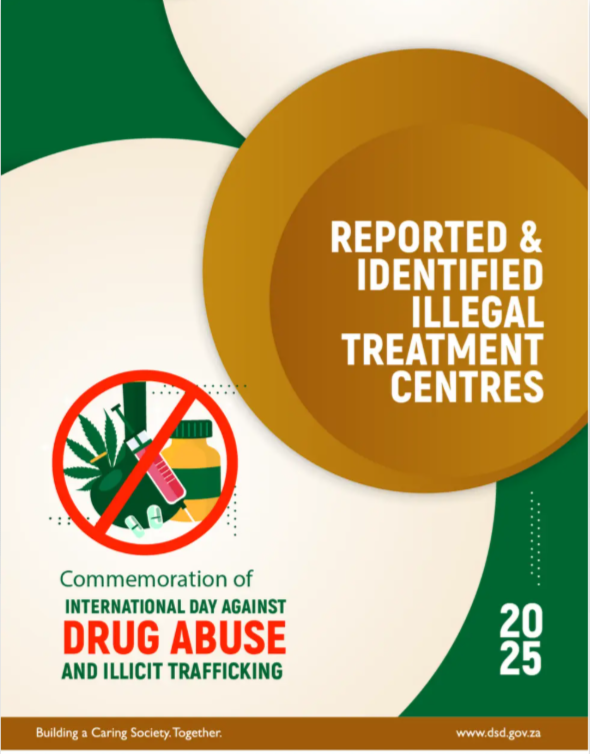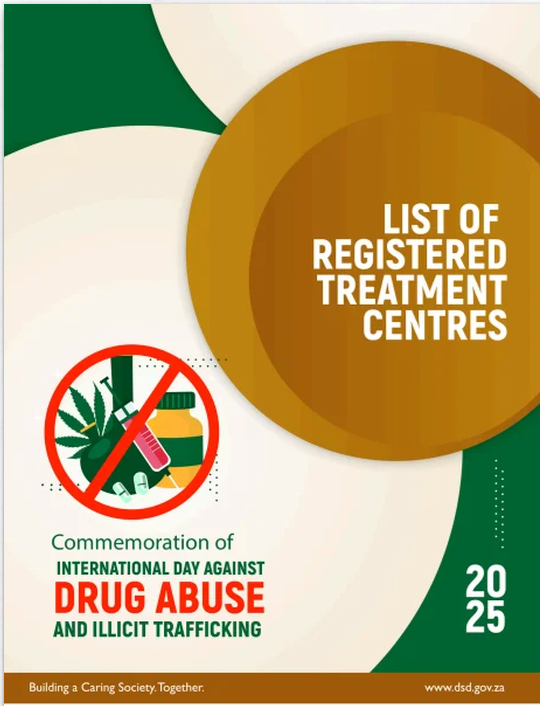- The Northern Cape Government reinforced its commitment to prevention-led responses, focusing on education, family resilience, and early intervention.
- Community-Driven Safety: Local successes in reducing crime were acknowledged, with emphasis on the need to tackle hidden dangers such as gender-based violence within homes.
- No success story begins with substance dependency. But there is hope if we choose differently.
Kalksloot, Northern Cape — In the heart of Kalksloot, the community became a powerful symbol of resilience and determination as the Northern Cape Government led a united campaign against substance abuse and illicit trafficking in observance of the International Day Against Drug Abuse and Illicit Trafficking on 26 June 2025.
In response to the growing challenges of substance abuse and its impact on local families, residents are stepping forward with determination and purpose. With support from provincial departments and civil society partners, the community is driving initiatives aimed at prevention, education, and youth development. Local workshops, awareness campaigns, and safe spaces for young people are becoming key tools in building a culture of resilience and shared responsibility.
These efforts are laying the foundation for long-term change—strengthening social bonds, restoring hope, and empowering the community to create a healthier, safer environment for all.
The provincial observance, led by MEC for Social Development Ms Nontobeko Vilakazi and MEC for Transport, Safety and Liaison Mme Dimakatso Koloi, brought together key stakeholders from law enforcement, government, civil society, and youth formations to confront the growing impact of substance abuse, crime, and social instability in communities like Kalksloot.
“Prevention is an Investment in Our Future” – MEC Vilakazi
Delivering the keynote address, MEC Vilakazi highlighted the urgent need to shift from reactive responses to proactive, evidence-based prevention. This year’s global theme, “The evidence is clear: invest in prevention”, resonated throughout her remarks:
“The cost of inaction far outweighs the investment in prevention. We must strengthen education, build emotionally resilient families, promote mental wellness, and create socio-economic opportunities that reduce the appeal of substance use.”
She urged municipalities to fast-track the establishment and strengthening of Local Drug Action Committees (LDACs) to serve as the backbone of community-based interventions.
“Safety Begins in Our Homes” – MEC Koloi
MEC Koloi drew a direct link between substance dependency, criminality, and broken social structures, praising the work of the Rosedale Police Station for being removed from the national list of top crime hotspots. Yet she cautioned:
“Safety cannot be measured by statistics alone. For many women and children, their homes remain places of fear and insecurity. We must confront gender-based violence with the same resolve we apply to crime prevention.”
Breaking the Cycle: Community Voices and Integrated Action
The programme featured powerful testimonials and intersectoral dialogue. A rehabilitated former inmate shared his journey, reminding the audience that transformation is possible:
“There is no success story that begins with substance dependency. But there is hope if we choose differently.”
Departments of Health, Education, Justice, and community-based organisations echoed a unified commitment to trauma-informed, inclusive approaches that centre healing, treatment, and reintegration.
In a poignant statement, SAPS officers urged communities to stop protecting perpetrators of violence and drug-related offences:
“We need to act collectively. Saying no to drugs is saying yes to life.”
Youth as Agents of Change
Addressing the intersection of substance use, unemployment, and gender-based violence, both MECs issued a powerful challenge to young people:
“You have the power to say no to those who trade your dreams for despair. Choose resistance. Choose a future.”
To support this call, the Department of Social Development continues to roll out Youth Empowerment Workshops and Career Expos—like the one in Kalksloot that reached 180 young participants—as part of broader efforts to create meaningful pathways for youth development.
Closing Words from MEC Vilakazi:
“Let this not be just a day of awareness. Let it mark the beginning of a new chapter—a chapter in which we break the chains of substance dependency, dismantle trafficking networks, and rebuild communities anchored in dignity, hope, and opportunity.”




